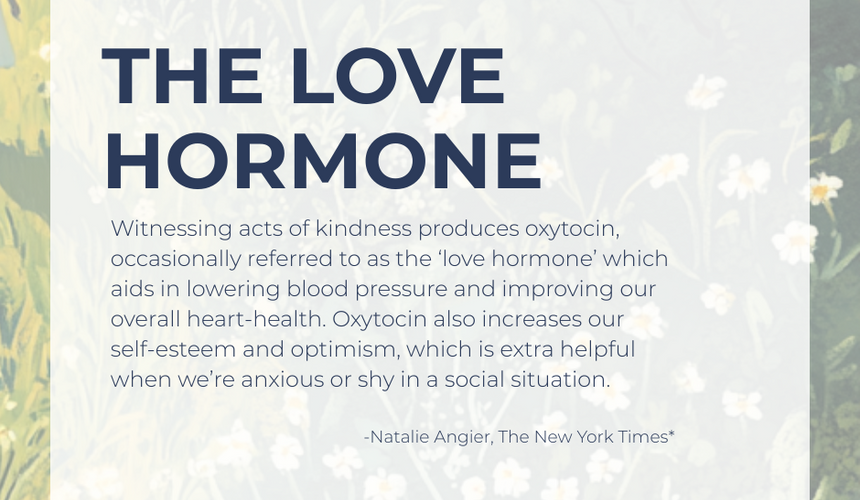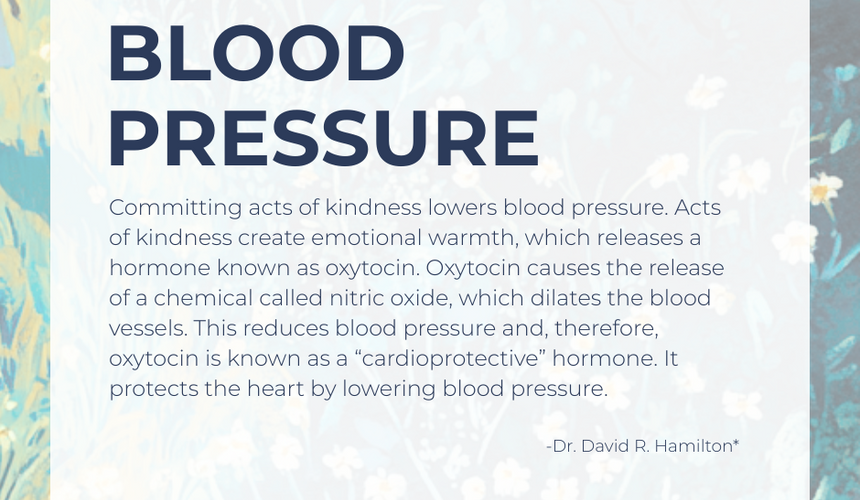Kindness matters: Even the robots know it
- Amber Davis
- 1 day ago
- 5 min read
Kindness is good for everyone.
I don’t remember much about my childhood violin teacher. I vaguely recall that she was young and pretty—in high school when I started lessons with her. I thought her family’s house (where I’d show up with my dog-eared lesson book and folding music stand and squeaky, three-quarter-size violin once a week) was fascinating. Old architecture, jam-packed bookshelves, comfortable, overstuffed furniture. I can’t picture her face, and I’m not sure if her name really was Kristi or if I just remember her as a Kristi because I became obsessed with Kristi Yamaguchi in the winter Olympics not long after. Memories are tricky things.

What I do remember is that Kristi (let’s just lean into it) was kind.
She spoke to me softly, and patiently. I was a shy, anxious child. Kristi knew when I hadn’t been practicing, but she never embarrassed me or made me feel ashamed. Instead, she molded our lessons to help me leave on a win each time, hoping I’d ride the high and be inspired to practice more.
Sometimes it worked, sometimes it didn’t. I am a mediocre violinist to this day. But Kristi made me feel safe, worthy, and good.
Kindness releases serotonin and oxytocin in our brains—the neurotransmitters responsible for making happiness and love possible. Combined with the chemical lift humans can achieve from playing a musical instrument, it’s no wonder my vague memories of lessons with Kristi are categorized in my mind as happy times.
Kindness ripples outward
When we perform even the simplest act of kindness—picking up something for someone who has dropped it, for instance—we benefit from that hit of feel-good serotonin-oxytocin combo in our brains. Simultaneously, the person receiving our kindness also gets a feel-good neurotransmitter pick-me-up, and even a person witnessing an act of kindness experiences an oxytocin boost in the brain.
According to the Random Acts of Kindness Foundation, kindness increases:
That’s right—lifespan. People who are kinder, and actively engage in activities like volunteering, live longer, happier lives.
Kindness has also been proven to decrease:
Kindness all around
Recently, in a Mix team meeting, we were discussing some AI updates and new tools. Someone made a joke about being nice to the robots: including a greeting, and “please and thank you” in your prompts. The subtext was "be nice and you might survive the inevitable robot uprising."
But jokes aside, there is an actual, tangible value to remembering your manners when you collaborate with AI entities. Output improves. AI tools perform better when you are nice to them. I am not making this up.
Google engineers, attempting to maximize accuracy for a specific reasoning model, recently made an inadvertent discovery:
When phrases like “take a deep breath” and “go through this step by step” were used to encourage the AI to solve math equations, it demonstrated an astonishing 80% accuracy in its answers, compared to a mere 34% accuracy achieved with less supportive language. This research reaffirms that AI systems, while not sentient, perhaps benefit from the same kind of encouragement and guidance that humans do.1
Why and how do good manners and patience have an impact on non-sentient machine performance? Because these machines are trained on human data, human behavior, and human nuance. We might conclude, then, that encouragement and kindness may be more correlated with careful reasoning than seems obvious. And also, maybe “kindness may be a more foundational behavioral norm then we give it credit for.”2
A kinder workplace culture
So many things about twenty-first century corporate productivity culture are contraindicated for our well-being, and counterintuitive to our evolutionary nature. But the fact that kindness still permeates the subtext of our behavioral data—to the extent that AI tools learn from us what we ourselves have forgotten—means that our humanity hasn’t been beaten out of us yet.
It means we can harness that “foundational behavioral norm” and create something better.
“Hello babies. Welcome to Earth. It's hot in the summer and cold in the winter. It's round and wet and crowded. On the outside, babies, you've got a hundred years here. There's only one rule that I know of, babies—goddamn it, you've got to be kind.”
-Kurt Vonnegut
Imagine working with a team and in an environment where kindness is the norm. It’s expected, fostered, and modeled—and unkindness is actually addressed as unacceptable. Kindness doesn’t have to be an abstract, optional, “soft skill.” Business leaders can—and some are—choosing to prioritize kindness as a requirement of the job.
And why not? The key here is to understand that what is beneficial to humans is beneficial to business. Healthier, happier people have better ideas, more emotional and mental bandwidth for problem-solving, and are better able to adapt, learn from failure, lead others, and seize opportunities.
“Creating a culture that fosters kindness allows individuals to not only produce innovative ideas but also feel secure enough to express and share them.”
-Andrew Swinand, for Harvard Business Review
Talent retention and development are both direct results of a kind work environment. Offering sincere compliments and words of recognition can help your team to feel more fulfilled. It also “boosts their self-esteem, improves their self-evaluations, and triggers positive emotions. The result: happier, more engaged employees.” 3
A study from the Academy of Management found that:
Specifically, self-compassion remedies exhaustion and other-compassion remedies cynicism.
While an in-depth study published in the Journal of Positive Psychology
concluded that:
… performing acts of kindness promotes social connection, a construct that is a key predictor of both well-being and recovery from anxiety and depressive disorders. We further demonstrated that performing acts of kindness results in greater well-being benefits than established CBT techniques.
CBT is cognitive behavioral therapy. You read that right—being kind is better than therapy. And it’s free. Employers should be tripping over themselves to institutionalize kindness.
Random Acts of Kindness has tools for that, by the way. Assessments, posters, guides. Even a workplace kindness certification program.
“I’ve learned that people will forget what you said, people will forget what you did, but people will never forget how you made them feel.”
-Maya Angelou
The robots know this, and, as evidenced by my vague childhood memories of a violin teacher who made me feel good about being me, we humans know it too. Why not build a workplace that builds kindness?
*
The love hormone
Energy
Pleasure
Serotonin
Lifespan
Pain
Stress
Anxiety
Depression
Blood pressure




















Comments